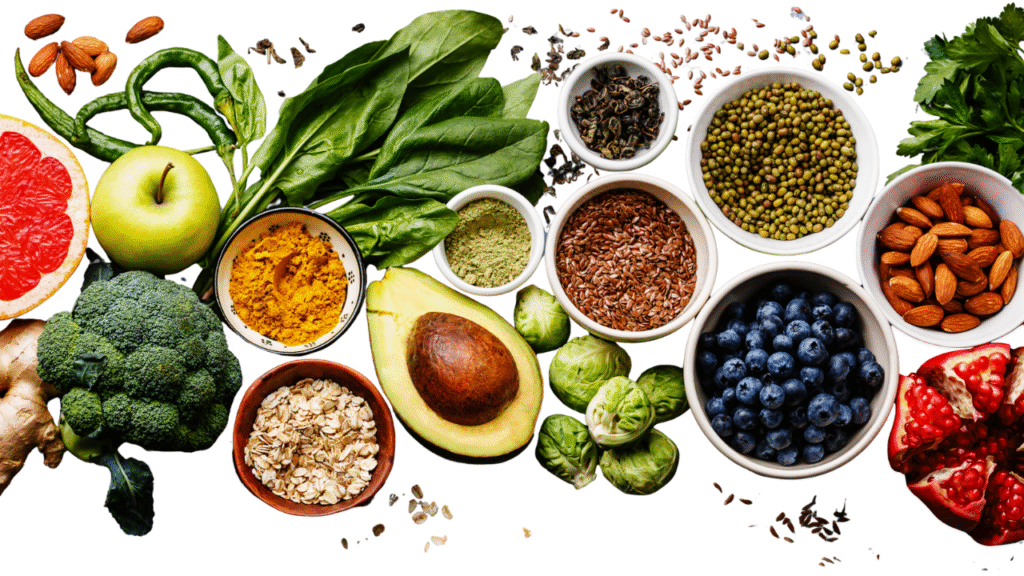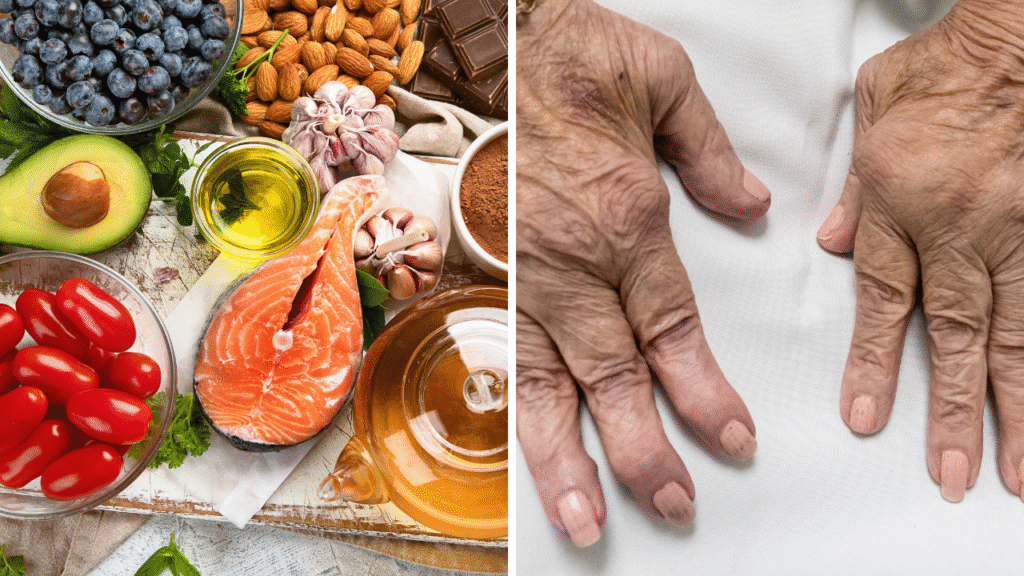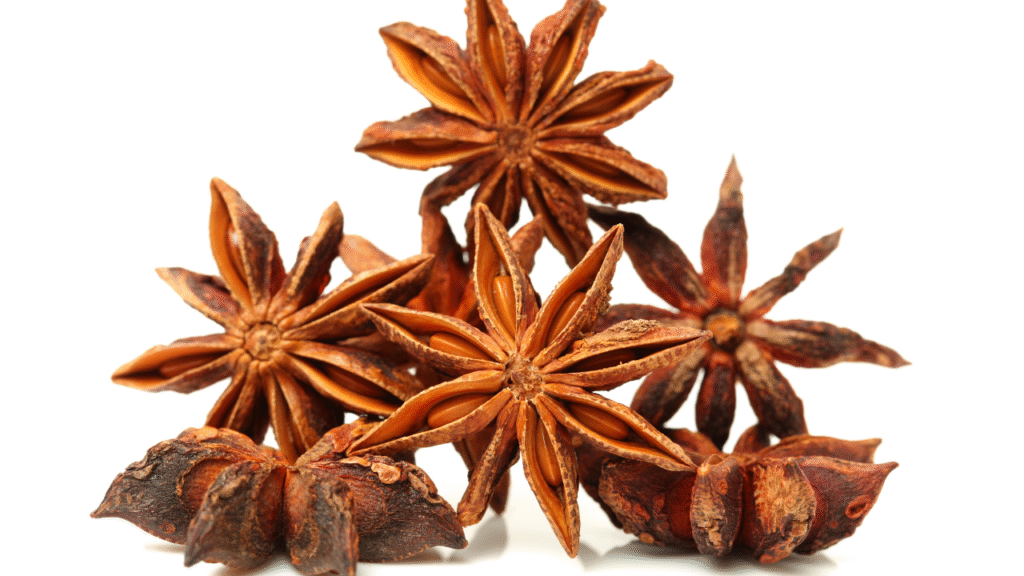
Bilberry (Vaccinium myrtilus L.) is one of several well-known deciduous dwarf shrubs in the genus Vaccinium (family Ericaceae). Most of these shrubs live in mountainous, cool-temperate areas of Europe, Asia, and Northern America. It is also called huckleberry, whortleberry, and European blueberry. Bilberries can look anywhere from almost black to almost deep blue. The bilberry is a dark blue-black fruit between 5 and 9 mm in diameter and has a lot of seeds inside. Different medicines are made from both the fruit and the leaves.
Nutritional Facts
Bilberry is one of the healthiest berries you can eat. It is because it has a lot of anthocyanins and phenolic compounds like quercetin, tannins, pectin, and catechins. In addition, it has essential nutrients like alkaloids, carbonic acids, and vitamins A, B1, B2, C, E, and K. Its most valuable minerals are chromium, manganese, zinc, and iron. So, you can expect about 85 calories, 15 grams of natural sugar, and 4 grams of fiber in one cup of bilberries (148 grams).
Shop on Amazon
Health Benefits of Bilberry
1. Effect on cancer
Anthocyanins, found in berries, can help treat and prevent cancer. An extract of bilberry was able to inhibit the growth of normal colon cells without having any effect on cancerous colon cells. According to a study that used DNA microarrays, treating macrophages with bilberry extract either turned on or turned off anti-inflammatory genes.
2. Heart-healthy
Bilberries contain anthocyanins, which prevent smooth muscles from contracting and platelets from sticking together. As a result, they could reverse the damage induced by ischemia and reperfusion in an animal model. In addition, in a human trial that involved 35 participants who consumed 100 grams of whole bilberries daily, platelet function, blood pressure, and cholesterol were significantly improved.
3. Anti-Inflammatory Effects
In several studies, anthocyanins have anti-inflammatory properties, the primary phenolic chemicals found in bilberry. Chronic inflammation has been linked to various age-related diseases, including cardiovascular disease and cancer. Inhibiting the activity of the proteasome, which is responsible for the degradation of cellular proteins, is one way to prevent this process.
4. Hypoglycemic Effects
The bilberry has properties that make it an antioxidant, anti-inflammatory, and lipid-lowering. Polyphenols found in berries have been shown to inhibit digestive enzymes like lipase, which reduces the amount of fat absorbed by the body. In diabetic mice, adding bilberry extract to their diet resulted in a decrease in serum glucose and an improvement in insulin sensitivity.
5. Better eyesight
Most older people have a lower quality of life because of age-related vision loss, caused mainly by cataracts and macular degeneration. By getting bilberry juice, scientists were able to stop the photooxidation of pyridinium disretinoid A2E, a pigment that breaks down when exposed to light. Instead, berries’ red, blue, and purple colors come from chemicals called anthocyanins. In addition, in a study of 50 people with mild senile cataracts, anthocyanins from bilberries combined with vitamin E stopped cataracts from worsening.
6. Effects that protect the brain
The effects of bilberry on blood vessels and inflammation will significantly affect the maintenance of neuromotor and cognitive function. Rats were given a commercial bilberry extract at a dose of 200 mg/kg intraperitoneally every day for five days. It increased the amount of triiodothyronine moved to different parts of the brain.
7. Antimicrobial Effects
Some naturally occurring substances are antimicrobial. For example, a study on wild berries found that bilberry juice stopped Streptococcus Pneumonia from sticking to human bronchial (Calu-3) cells. These results could affect how bilberry is used to treat organisms that antibiotics can’t kill.
8. Could lower blood sugar
People with type 2 diabetes often use bilberries as herbal medicine to lower their blood sugar levels. Experts think that the berries work like some blood-sugar-lowering drugs by stopping your gut from breaking down and absorbing carbs. In addition, studies on animals show that the anthocyanins in bilberries may also help the body make more insulin, which is needed to move sugar from the blood into the cells.
9. It May be good for the heart
Bilberries have a lot of vitamin K, which helps keep blood from clotting. As a result, it lowers your risk of heart attack or stroke. In addition, research in test tubes shows that the mix of anthocyanins in bilberries may help lower blood pressure.
10. Helps with diarrhea
For many years, European doctors have used bilberry to treat diarrhea. Tannins in the fruit work as an anti-inflammatory and an astringent to help tighten and shrink tissues. It is thought to help ease the symptoms of diarrhea by reducing inflammation in the gut.
Uses
Fruits can be eaten immediately or turned into jams, fools, juices, or pies. In France and Italy, they are used to make liqueurs and are a popular flavoring for sorbets. In Poland, they are eaten fresh (mixed with sugar) or used to make jams or fill sweet buns called jagodzianka.
Side Effects
Most people think that bilberry extract and fruit are safe and have no known side effects. Because the anthocyanosides in this fruit may stop blood from clotting, taking it with blood-thinning drugs like aspirin may make you more likely to bleed. Bilberry extract is considered safe for most people when taken in average amounts. Rats have been given as much as 400 mg/kg of body weight without getting sick. People with bleeding disorders or who take medicines that thin the blood may be more likely to bleed.
CONCLUSION
Anthocyanins are phenolic chemicals that give berries red, blue, and purple colors. They have many health benefits, including antioxidant, anti-inflammatory, antitumorigenic, hypoglycemic, and antimicrobial effects. However, for clinical recommendations on using bilberry to treat chronic and infectious diseases, well-designed human trial must be done with standardized bilberry extracts.
Where to Buy
You can find it at grocery stores, health food stores, and online.
Shop on Amazon
DISCLAIMER OF MEDICINE
This information is not meant to provide medical advice or replace a personal physician’s advice or treatment. All readers of this information, especially those taking prescription or over-the-counter medications, should check with their doctors before initiating any nutrition, supplement, or lifestyle program. In addition, the statements and goods on this website have not been evaluated by the Food and Drug Administration.




